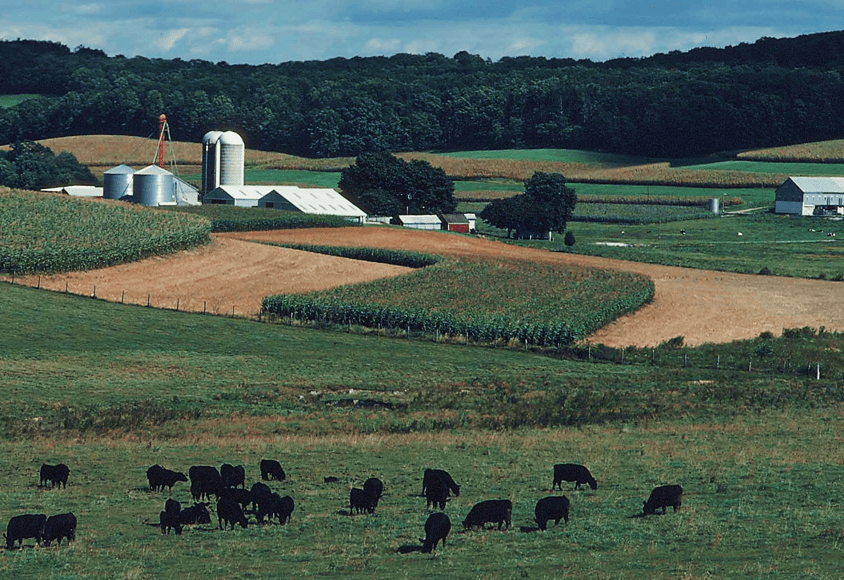Agribusiness giant Monsanto has outlined plans this week to make its operations carbon neutral by 2021. In a statement coinciding with the beginning of COP21, the Paris Climate Change Conference, the agribusiness detailed plans to focus on bringing emissions down in its seed production and crop protection operations, and also through sharing data and increasing the adoption of best practices within the farming community.
“Climate change is one of the biggest issues we face in agriculture, as well as one of the most pressing challenges facing humanity,” said Hugh Grant, Monsanto chairman, and CEO in a statement. “That’s why we have pledged to do our part within our own business and to help support farmers and others.”
Monsanto made the announcement just two days before a global food, farming and environmental coalition revealed plans to put the agribusiness on trial “for crimes against nature and humanity, and ecocide.” The group plans to bring Monsanto to trial in The Hague, Netherlands, on World Food Day on October 16, 2016.
Speaking at a press conference in Paris, Ronnie Cummins, international director of The Organic Consumers Association and Via Organica, and a member of the Regeneration International Steering Committee said: “The time is long overdue for a global citizens’ tribunal to put Monsanto on trial for crimes against humanity and the environment. We are in Paris this month to address the most serious threat that humans have ever faced in our 100-200,000 year evolution—global warming and climate disruption. Why is there so much carbon dioxide, methane and nitrous oxide in the atmosphere and not enough organic carbon matter in the soil? Corporate agribusiness, industrial forestry, the garbage and sewage industry and agricultural biotechnology have literally killed the climate-stabilizing, carbon-sink capacity of the Earth’s living soil.”
The organizations involved are The Organic Consumers Association, IFOAM International Organics, Navdanya, Regeneration International, and Millions Against Monsanto alongside a group of global food, farming and environmental justice groups, according to a press release.
“Monsanto promotes an agro-industrial model that contributes at least 50 percent of global anthropogenic greenhouse gas emissions,” wrote Vandana Shiva, physicist, author, activist and founder of Navdanya, and a member of the Regeneration International Steering Committee. “Monsanto is also largely responsible for the depletion of soil and water resources, species extinction and declining biodiversity, and the displacement of millions of small farmers worldwide.”
Under its new initiative, Monsanto plans to incentivise farmers to follow various carbon-saving practices including using agronomic data science, reduced tillage practices, cover crops, precision agriculture and nutrient management, according to a page on its website dedicated to its carbon neutral crop production model.
A professor at Kansas State University and an author of the Intergovernmental Panel on Climate Change (IPCC) praised Monsanto’s plans, saying in a press release that it was a “critical step in agriculture’s overall effort to mitigate climate change.”
“The recent IPCC report indicated that agriculture is a significant pathway to mitigating greenhouse gasses,” wrote Dr. Chuck Rice in Monsanto’s press release. “Similar to other formalized carbon offset and renewable energy credit programs, organizations have started to invest in verified offsets originating from agricultural activities. Agriculture can be a positive force in the fight against climate change, and it’s important to see Monsanto stepping forward in this way.”
Meanwhile, the group aiming to put Monsanto to trial detailed the products it claims are the biggest offenders for the environment and human health in a press release:
“PCBs (polychlorinated biphenyl), one of the 12 Persistent Organic Pollutants (POP) that affect human and animal fertility;
2,4,5 T (2,4,5-trichlorophenoxyacetic acid), a dioxin-containing component of the defoliant, Agent Orange, which was used by the US Army during the Vietnam War and continues to cause birth defects and cancer;
Lasso, an herbicide that is now banned in Europe;
RoundUp, the most widely used herbicide in the world, and the source of the greatest health and environmental scandal in modern history. This toxic herbicide, designated a probable human carcinogen by the World Health Organization, is used in combination with genetically modified (GM) RoundUp Ready seeds in large-scale monocultures, primarily to produce soybeans, maize, and rapeseed for animal feed and biofuels.”
Monsanto had not responded to requests for comment when AgFunderNews went to press.
Have news or tips? Email [email protected]
Image credit: USDA on Flikr





